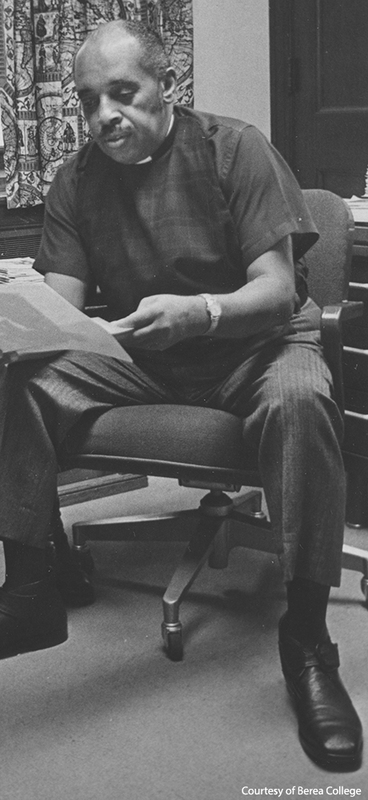Leadership Gallery
The Reverend Henry Levy Parker, 1921-1982
As a proponent of social change, Henry Levy Parker committed the majority of his career to bettering the lives of communities in the South. Born in Plainfield, New Jersey in 1921, Parker received his Bachelor of Arts from Gordon College in 1949 before attending Harvard from 1952 to 1955. He was ordained a deacon in 1955 and a priest two years later.
From 1955 to 1956, while fulfilling his first assignment as Minister-in-Charge at St. Paul’s Church in Orangeburg, South Carolina, Parker served on the Board of Directors of the NAACP chapter in Orangeburg. For his next appointment he returned north to Detroit where he served as curate at St. Cyprian Church from 1956 to 1957 and as vicar at the Church of the Resurrection in Ecorse, Michigan until 1964. He served as president of the Ecorse/Rouge Michigan Chapter of the NAACP in 1959. Before turning to social welfare full-time, Parker ministered as vicar at St. Phillip’s in Little Rock, Arkansas for two years.
Henry Parker contributed to the work of the Volunteer Services at the Opportunity Industrialization Center as director in 1967 and to the Advisory Committee of the Ministry of Higher Education. In Greenville, Mississippi, he was an active participant in the civil rights movement where he served as Director of Interpretation for the Delta Ministry and editor of the monthly newsletter Delta Ministry Reports from 1968 to 1971. He assisted in bringing direct relief services, community development, and reconciliation between the Black and white people in the communities of Mississippi. While in Greenville in 1971, he also worked as director of Brethren Services.
From Mississippi, Parker went on to serve as chaplain at Berea College in Kentucky, which was founded as the first interracial and co-educational college in the South. He held this position from 1971 until his death in 1982. During this time he also worked to promote equality during his appointment as president of the Berea Ministerial Association. Parker also authored sections of the publication The Church and Violence in Rural Areas, and was a member of the National Association of College and University Chaplains. [Sources]


